Knowledge
We share our knowledge with community
to improve industry as a whole
to improve industry as a whole



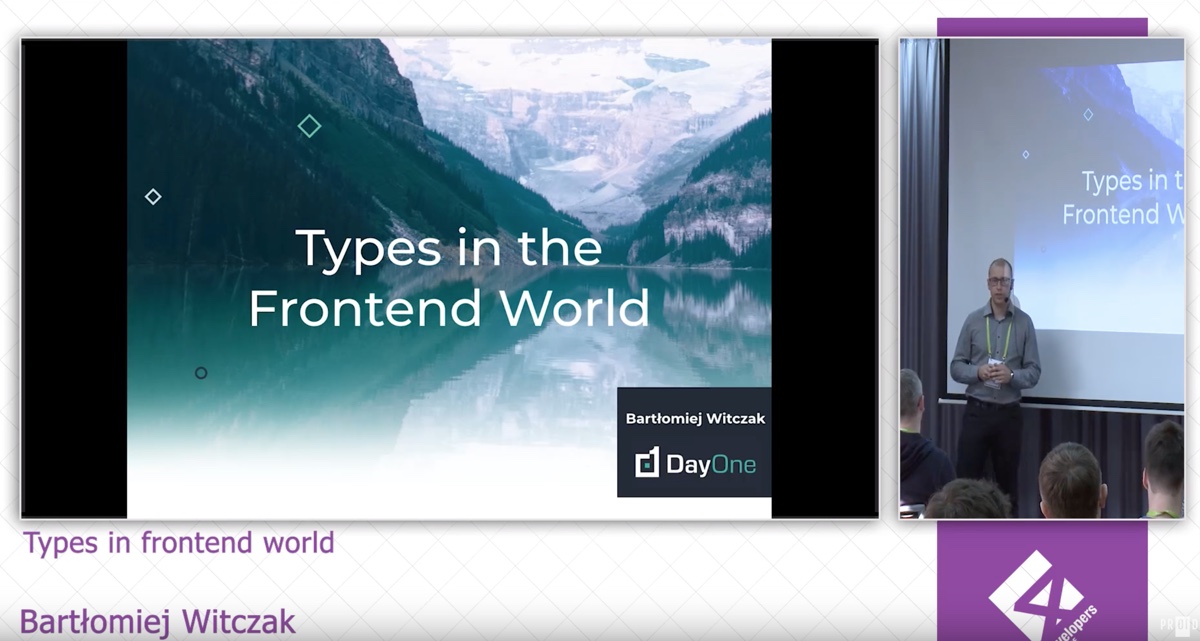

Types in the Frontend World – 4Developers 2018


Building large-scale JavaScript application is really challenging. Even JavaScript enthusiasts need to agree that developing and maintaining big frontend project is very demanding. Major changes to large codebases can be scary. There is no help in IDEs as well. Programming in JS being both dynamic and weak typed language doesn’t really provide a safety net.
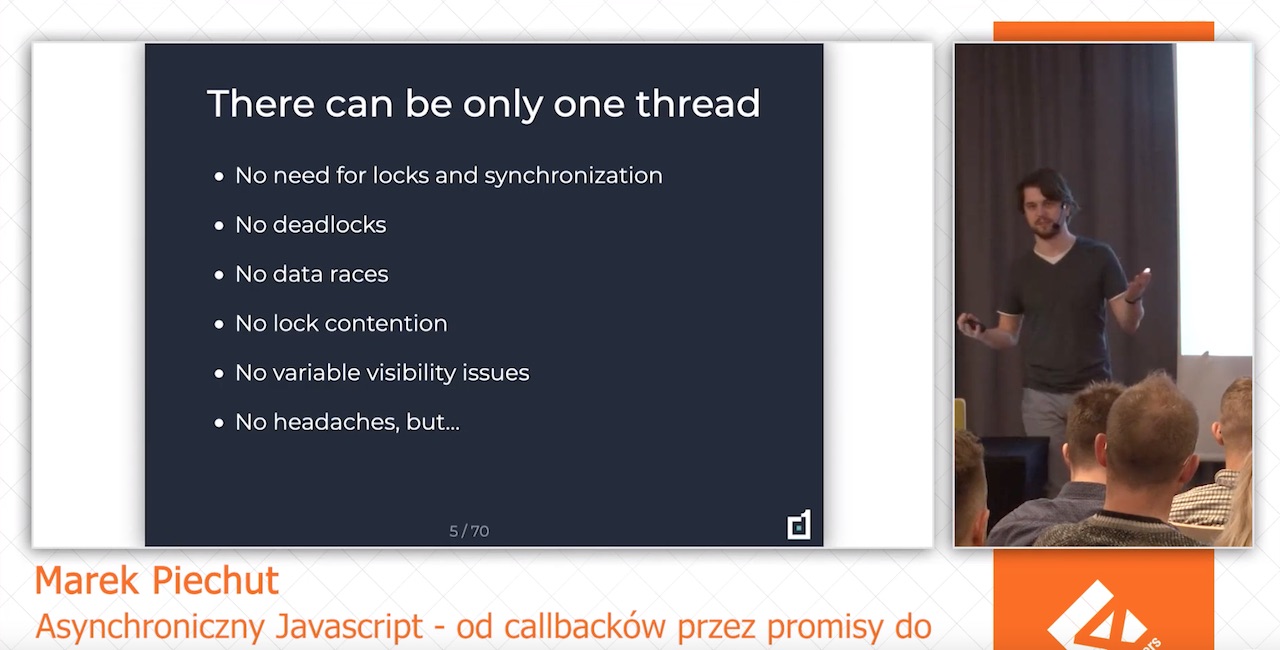

Asynchronous JavaScript – 4Developers 2018


The fact that JS is single threaded doesn’t mean that everything has to be done in sequence.We’ll do a deep dive in how to write asynchronous Javascript code for browser and Node.js. We’ll start with famous Node callbacks. See the "streetfighter code" hell they can easily produce. Then we’ll check Promises and how they make async code beautiful and super-powers they provide. We’ll wrap it all up by once again migrating our code from Promises to generators and async/await that were introduced in ES2017. You should then be ready to choose async code style that fits your needs best.
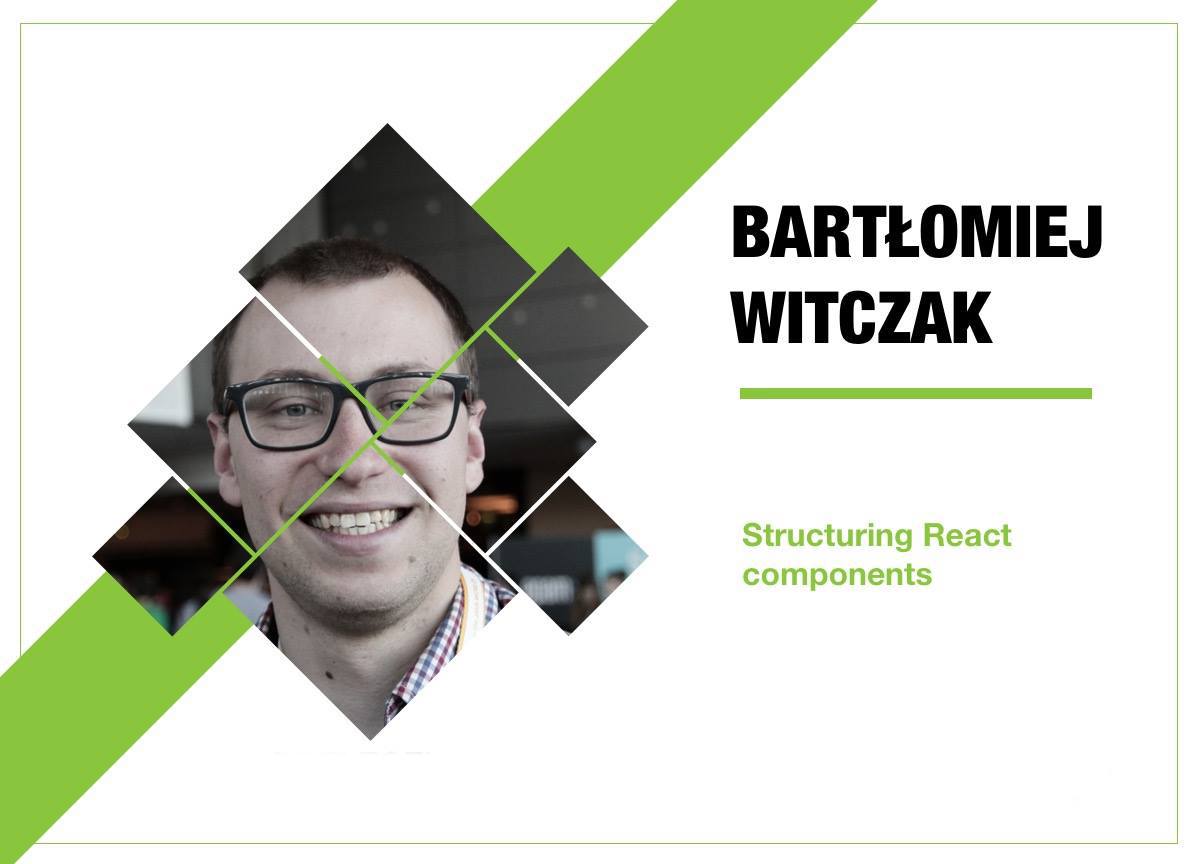

Structuring React Components – 4Developers 2018


There are many ways we can structure components. We want components to be reusable, but only to the degree that is reasonable. We want to build small components that can be used to build bigger concepts. Ideally, we want to build loosely coupled & highly cohesive components, so our system is easier to maintain and grow. In React components props can be treated like function arguments and that’s exactly the case for functional stateless components. How we define props in a component, defines how a component can be reused.
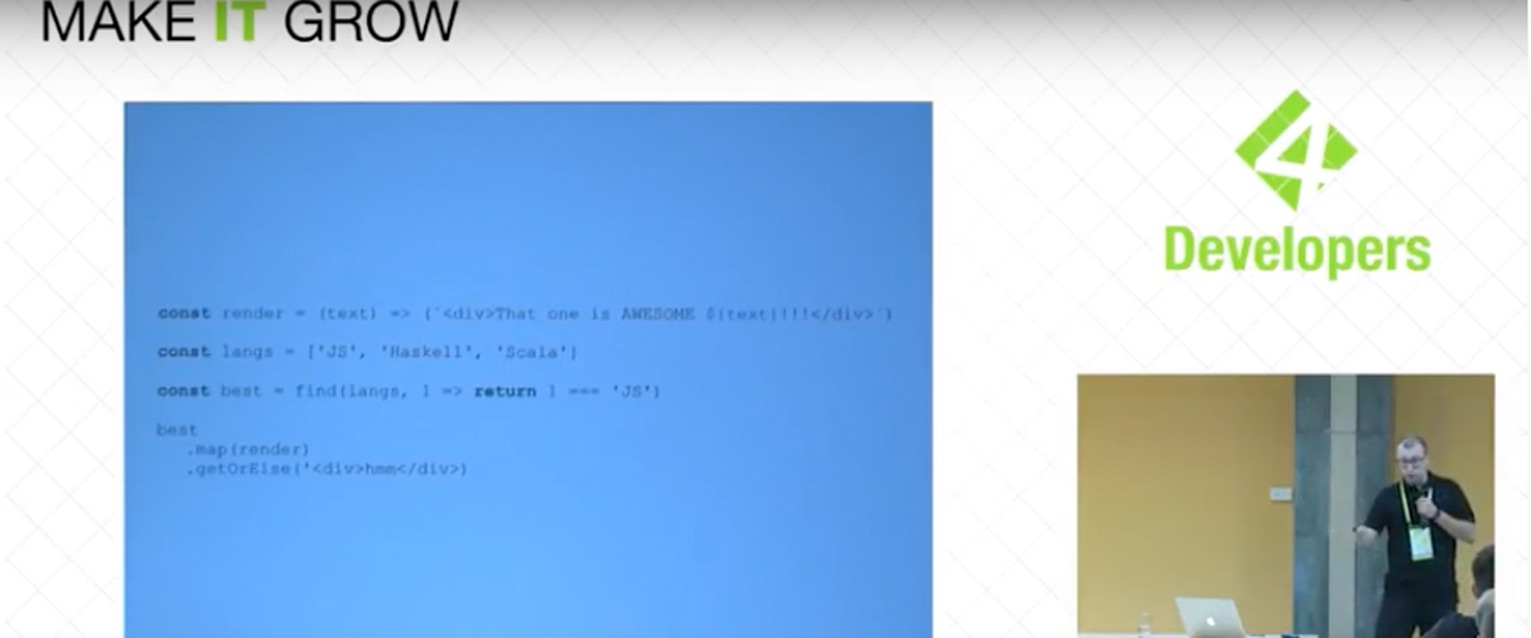

Functional JavaScript for everyone – 4developers 2017


Functional programming is becoming more and more popular. It’s quite obvious that there are many benefits on using FP elements on server side. How does it look like in JavaScript world? I will focus on functional concepts that can improve our every day work. I won’t talk about monads, functors and other mathematical concepts. We’ll see how functional style can improve our codebase, make it more readable or simplify complex problems. Samples will be presented in JavaScript, but concepts are general for every programming language.
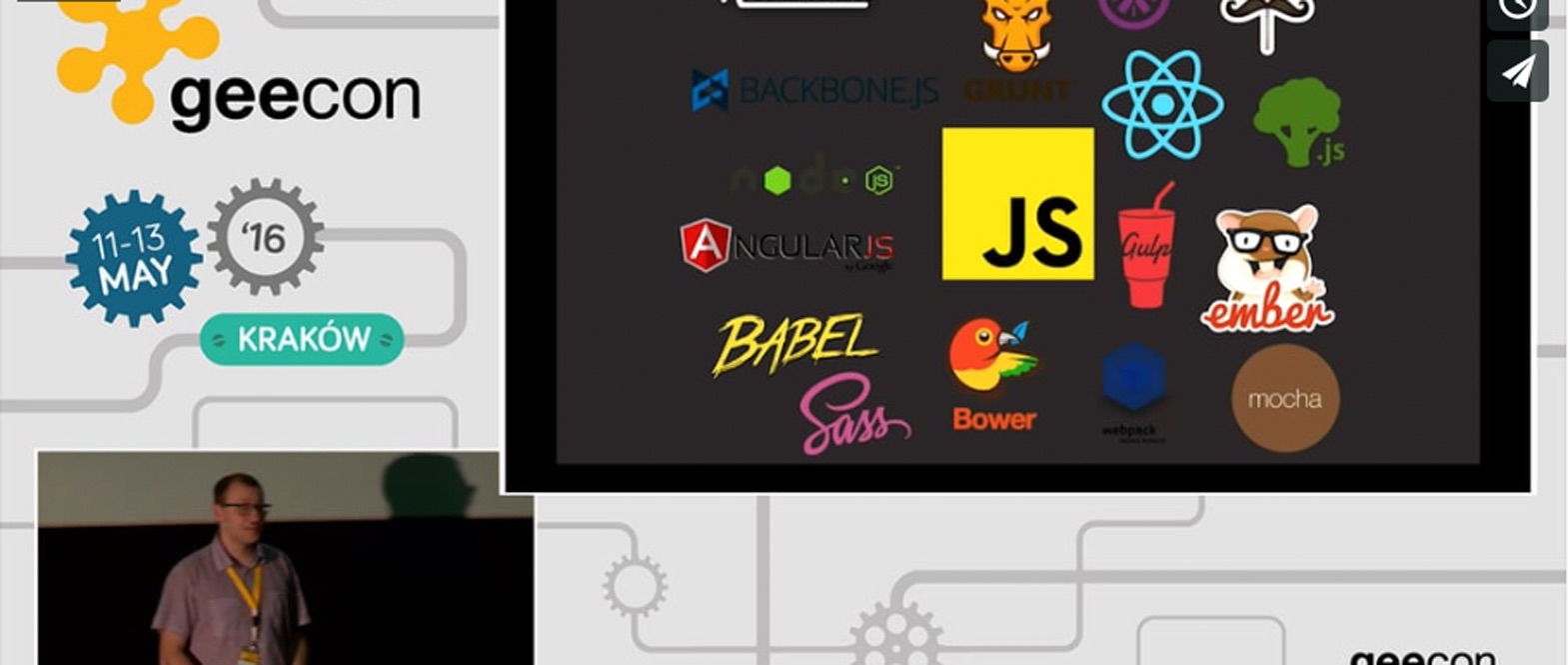

Flux - new/old approach to building frontend - GeeCON 2016


Nowadays applications become larger, more complicated and grow faster than ever. As a result, we need nicely decoupled, more maintainable codebase. This is where Flux comes in handy. It encourages one-way data binding, which simplifies reasoning about application flow a lot and removes spaghetti dependencies between components. So is MVC the easy approach and Flux the simple one?
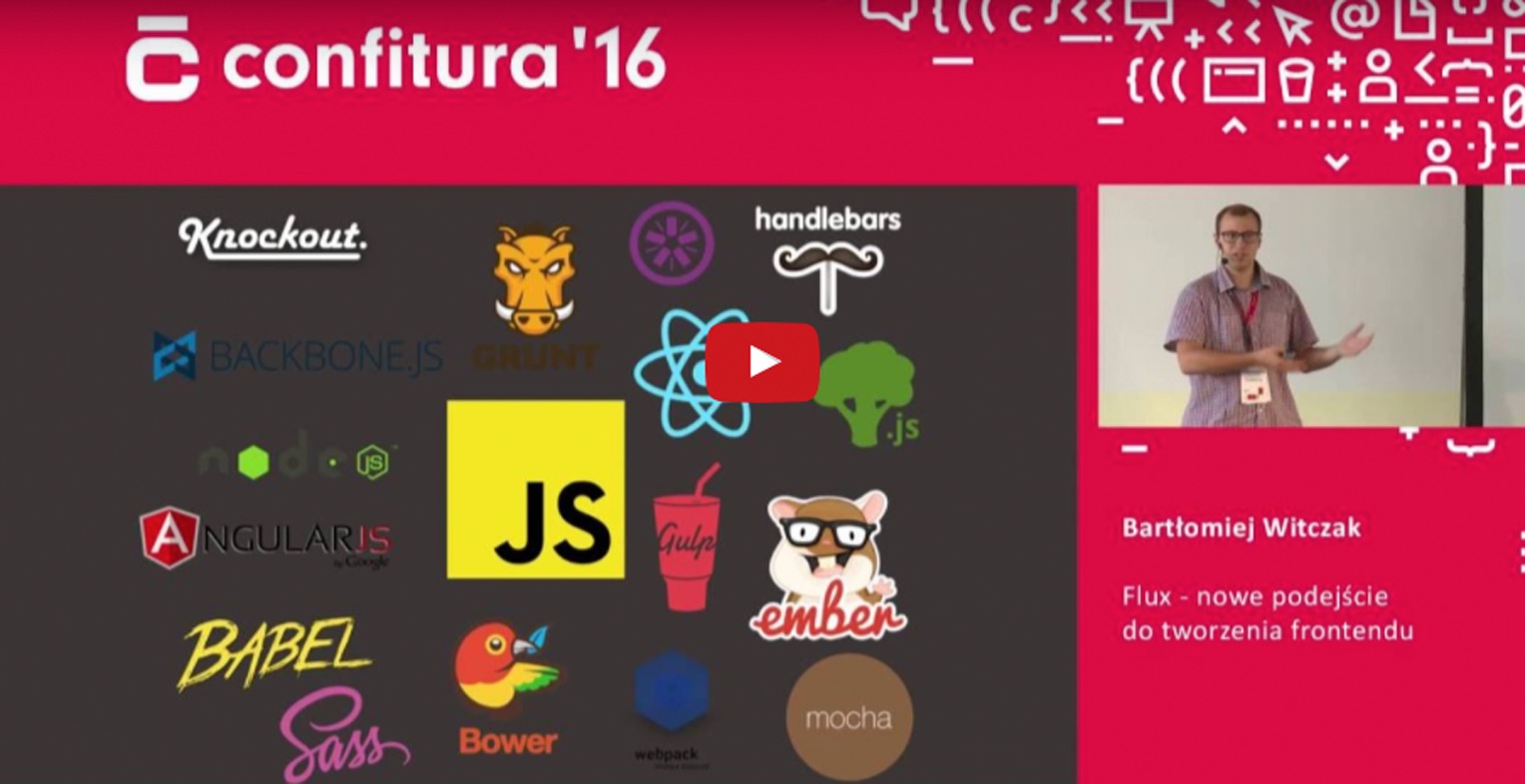

Flux – nowe podejście do tworzenia frontendu – Confitura 2016


Z dnia na dzień aplikacje stają się coraz większe i bardziej skomplikowane. Przy bardziej złożonych aplikacjach podejście MVC może powodować problemy. Wiązanie dwukierunkowe pomiędzy modelem a widokiem na początku może pomagać, jednak w miarę rozwoju aplikacji może stwarzać spore problemy. Potrzebujemy podejścia, które umożliwi nam łatwiejsze utrzymywanie i rozwijanie aplikacji. Chciałbym zaprezentować architekturę Flux. Cały pomysł opiera się na jednokierunkowym przepływie danych. Takie podejście ułatwia nam zrozumienie przepływu danych w aplikacji, dodawanie nowych funkcjonalności oraz utrzymanie porządku w naszym kodzie. Podczas prezentacji pokaże na żywo przykład aplikacji wykorzystującej architekturę Flux z użyciem biblioteki React. Pokażę jak stworzyć strukturę i połączyć wszystkie elementy w aplikacji.


